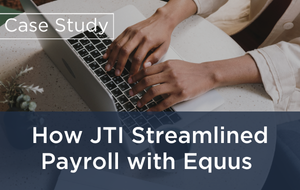Data Protection & Security
Managing global employees, when you send an employee overseas for a global assignment, you’re not just sending a person – you’re sending data and information too. So just as you will take precautions to carefully and safely relocate your employee, you need to do the same for your company data and employee information.
You see, when an employee is relocated, there are a number of different services and individuals who will need access to sensitive information throughout the relocation process. From the international insurers right down to the employees at the moving company, information needs to be shared. But how can you protect your sensitive details from entering the wrong hands, especially when data protection laws vary from country to country?
The key is to manage your information through careful planning, execution and monitoring of your global mobility strategy as a whole.
The Uncertainty of Securing Your Data Overseas
When it comes to developing a successful global mobility strategy, there’s more to think about than just the costs associated with the logistics. You also have to think about security. Different areas of the world have different approaches to handling data. Specific laws and protocols actually vary between countries, and not all approaches to data protection are of a sound or equal caliber.
Being able to identify the data security risks posed for a specific country is the first step in being able to establish and maintain a stable global mobility project in that area.
The Brexit Example
Consider supporting a global mobility program in the United Kingdom. Until Brexit came along, the UK was lawfully committed to comply with some of the most robust data protection and security laws as a member of the European Union. The legislation in place, called the Data Protection Directive, was adopted in 1995 to heavily regulate the processing of personal data in the European Union and the European Economic Area. Generally speaking, this directive encompassed some of the most robust data protection laws in the world.
While other countries are still trying to catch up, the EU is moving ever forward and seeking to further strengthen existing policies with the General Data Protection Regulation (GDPR), intended to be effective in May 2018.
For global mobility projects in the EU, this makes for an attractive partnership when it comes to securing data for assignee relocation. For projects in the UK though, Brexit has made the future of data security insecure. Will they participate in the GDPR or won’t they? How closely will they continue to abide by the existing EU data protection laws? What’s going to happen to all of that previously secure data? Alternatively, countries throughout Asia are still trying to develop their data protection laws, while many African countries have no specific laws at all.
So at a time when the world’s data security laws and regulations are perpetually developing and changing, how can global mobility leaders thrive and keep their employee information and their company data safe overseas? The answer is complex, yet simple: You just need the right tools, and you need to use them proactively.
With the right processes, policies and technology on the home front along with unified, intelligent data-driven tools that allow you to assess potential risks, newly developing trends or future changes on an external level, you can mitigate the risks involved with programs in specific countries. This will allow you to make informed decisions and establish flexible frameworks so you can maintain the integrity of your program, from start to finish, even with changes on the horizon.
Checkout our data driven tools for managing mobile employees.













